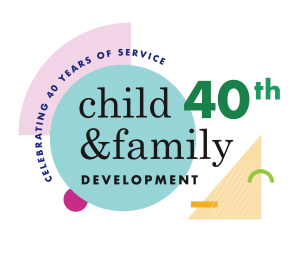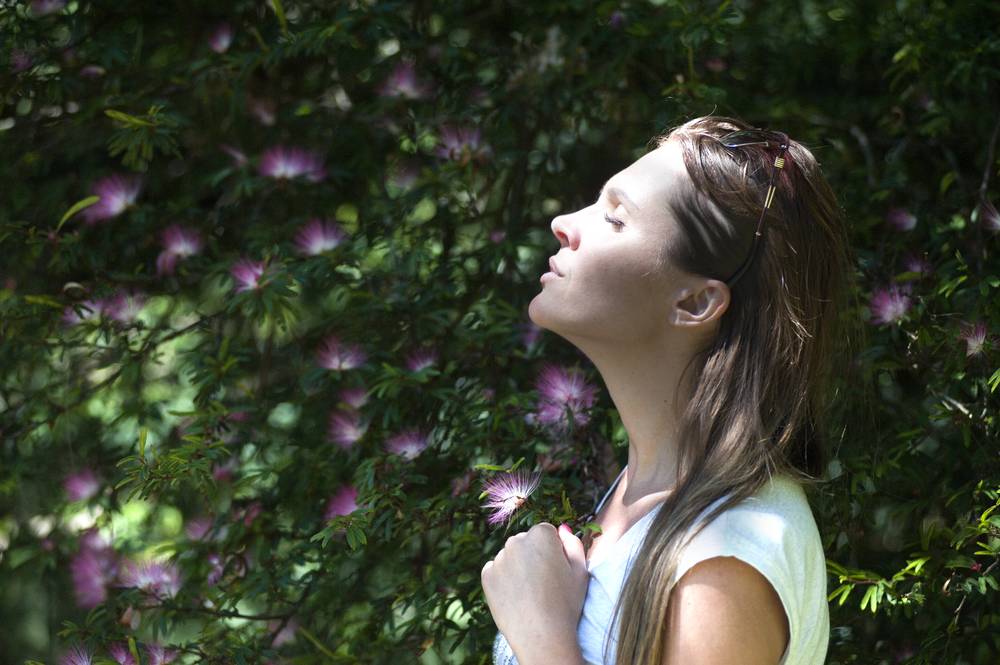Written by: Lindsey Anuzis, MA, LCMHCA, NCC, RBT ~ Child and Family Development
Over the past several months, we have been bombarded with media, and news coverage whether we sought it out or not. It is easy to become overwhelmed by the constant coverage of COVID-19, politics etc., so I have included some quick (less than five minutes!) and easy mindful exercises that you can incorporate throughout your day to intentionally take a break, re-center yourself, and relax.
Mindful Breathing
Slow, controlled, and intentional breaths. I am a very visual person and learn best through association. So, when working with clients, to explain the process of mindful breathing, I tell them to act as if they are continuously smelling flowers, and blowing out candles, or blowing bubbles. Smelling the Flowers means, slowly breathing in through your nose, continuing to take in air until it fills and expands your belly. Hold it for about 3-4 seconds, and then slowly release the breath from your belly as if you are blowing out candles on a cake, or blowing bubbles. Then hold. Complete this process for a few rotations.
Grounding
This is a great one for quick on the go use. I actually find myself utilizing this tool when I get stuck in all the Charlotte traffic on my morning commute! Grounding brings an awareness to the present moment, like all of mindfulness does, but is more focused, and tactile in my opinion. With my traffic example (please pay attention to the cars around you and be safe) but, if you start to feel some stress, or road rage (like my former New Jersian self) grounding is a great way to bring you back to a centered state. First take some deep mindful breaths, and then you can start by feeling your hands on the steering wheel. Notice how your hands hold the wheel. Are you gripping so tightly that your hands are turning white? Or are they softly resting on the wheel. Is the steering wheel smooth, or rough in texture? Notice how you are sitting in the driver seat. Are you sitting squarely on your seat bones, or are you twisted. Notice how your feet feel on the floor. Are they spaced far apart? How are your legs positioned? There are a variety of things you can bring attention to while sitting in a car, and by bringing attention to your surroundings, you redirect your focus, which will ultimately relax your body and your mind.
Mindful Eating (or drinking – your morning coffee works for this too!)
Mindful eating (or drinking) is something that engages your senses into the exercise. Say you want to practice this one with your morning coffee at your desk before you dive into work. Before you take that anticipatory first sip, start with observing how that mug of coffee looks on the table, untouched. Notice the color of the coffee, and the mug. Notice the steam rising from it, and the way the morning light catches and reflects off of it.
Now, pick up the mug, notice how it feels in your hands. Is it heavy, is the mug warm against your skin? Or is it room temperature because you got preoccupied with getting everyone fed that you forgot about your coffee? Regardless, notice how it feels in your hands. Bring the mug up to your nose, notice the smell of it. Now, bring the mug to your lips, notice how it feels (without burning your mouth!). Take a sip and pay attention to how the coffee tastes. Does it taste the same way it smelled? Notice how your body reacts- do you feel the warmth of the coffee as it travels from your lips to your tongue and down to your belly? Notice all the sensations that your morning cup of coffee can evoke.
Progressive Muscle Relaxation
Similar to a body scan in the sense that you move slowly throughout your body, but with progressive muscle relaxation as you move, you also practice tightening and relaxing each of your muscles as you go. Start at your feet, slowly curl and release your toes a few times, move to your ankles, and up to your calves, flexing and relaxing the muscles. Continue throughout your entire body all while taking slow, deep, methodical breaths.
Body Scan
A body scan is similar to progressive muscle relaxation, as it requires you to pay close attention to the physical sensations you are presently experiencing in your body- however a body scan does not ask that you try to change or relax your body. The goal of this mindful exercise is to simply bring awareness! Again, me being a visual person, I try to think of colorful dye slowly moving through my body to help visualize the slow methodical movement- might sound kind of weird, but hey it works for me! See what works for you as you start from the ground up by beginning at your feet. See what sensations you are experiencing- are you wearing socks? Are they warm or soft, or are you feeling any pain in your feet, or are they cold? Notice each and every sensation in your body as you make your way up your legs, through your hips, belly, chest, down your arms to the tips of your fingers, up your back and neck and finish with your head. You can stop here, or go back down through your body. Just notice.
Guided Imagery
Guided Imagery is a form of focused relaxation which aids in promoting harmony between mind and body. You utilize your own imagination to create a sense of calm and peace which works as a literal mental escape. This is one I love to utilize in my sessions with clients who are stressed, or anxious. However, a great time to utilize this technique is during a work break, or even right before bedtime if you struggle to “turn off” your brain from the day! There are lots of accessible guided imagery scripts on YouTube, or another easy fix is utilizing a meditation app such as headspace which offers a selection of guided imagery options.
Lindsey Anuzis, MA, LCMHCA, NCC, RBT is a Licensed Clinical Mental Health Counselor Associate as well as a Registered Behavior Technician at the Midtown and Pineville locations of Child & Family Development. Lindsey obtained her Bachelor of Science in Psychology from High Point University in High Point, NC and her Master of Arts in Clinical Mental Health Counseling from Wake Forest University in Winston Salem, NC. She provides ongoing therapy services to preschoolers through young adults to address concerns related to mood, behavior, and social skills. Her areas of clinical interest include stress and coping skills, life transitions, grief and loss, self-esteem, identity concerns, bullying and relationship issues, wellness counseling with a mind body emphasis and trauma. Contact us to schedule an intake appointment with Lindsey today.
Child & Family Development

Locations:
Mitdtown:
4012 Park Road, Suite 200
Charlotte, NC 28209
704.332.4834
Pineville:
11940 Carolina Place Parkway, Suite 200
Charlotte, NC 28134
704.541.9080
Website | Facebook | Instagram | Twitter




